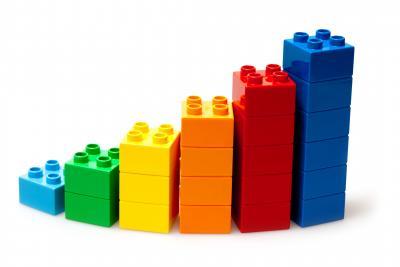Early Childhood Mathematics

Albert Einstein once said "Do not worry about your difficulties in mathematics. I assure you that mine are greater." This was before he published his theory of relativity and founded modern cosmology nearly a century ago. Dr. Robin Hojnoski, professor of school psychology, shares how tomorrow's Einsteins can learn to love math today.
-
Building Blocks: New research indicates mathematical knowledge at the beginning of kindergarten is highly correlated with first-grade math achievement and calculation abilities in second with a new principal, a new grade. Further, mathematical faculty, a turnaround team of skill in kindergarten is a strong predictor of later achievement. Simply put, math skills —even at the pre-K level— are a precursor to greater accomplishments.
-
More than One, Two, Three: Math skills do not develop accidentally, although it may seem that way. Young children learn about numbers, quantity, shape, pattern, position, size and, even, addition and subtraction through rich everyday experiences and interactions with others. This informal sense of mathematics is linked with more formal mathematics, such as writing numbers, when children enter school. The two are intertwined.
-
Young Children Are Smart... : If you’re already fretting about teaching your child story problem techniques or algebra, don’t worry. Young children have an incredible capacity and interest in learning about mathematical concepts. Some research suggests informal notions of mathematics begin at birth with an innate appreciation for mathematical concepts. During the preschool years, children's interest in mathematics is reflected in their use of mathematical language and concepts during play and, indeed, much of children's play implicitly involves mathematics. For example, playing with blocks is a complex activity of size, shape and spatial relations.
-
...But So Are We: Parents, caregivers and teachers can shape early math development. The types of activities adults and children engage in, the types of materials provided and the language adults use can all influence children’s growing understanding of mathematics. For example, research with families suggests incorporating “math talk” into shared storybook reading, playing board games together and talking about mathematical concepts in everyday routines and activities support young children's math development.
-
Math is Everything: Try taking a walk down the street with your child and not being able to point out shapes, numbers or size. Opportunities are everywhere. Recognizing the use of mathematics in our everyday routines and activities allows us to make explicit connections for children between their experiences and mathematical skills and concepts. To maximize the opportunities for children to engage in mathematical thinking and to provide rich mathematical experiences, adults need to be purposeful in their interactions with young children.